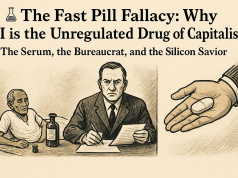As the world grapples with issues of climate change, social inequality, and economic disparities, Corporate Social Responsibility (CSR) has evolved from a ‘nice-to-have’ to a critical component in the survival and success of modern businesses. Today, enterprises are being scrutinized not just on the basis of their financial performance, but also on their impact on society and the environment. CSR initiatives have become the new arena where companies contend for leadership, reputation, and consumer trust.
One need only look at the rising trend of ‘impact investing’ to see the changing tide. Investors are increasingly diverting funds towards companies that demonstrate a strong commitment to sustainable and ethical practices. This shift is not just a moral one; it is grounded in the understanding that CSR initiatives often correlate with innovative, resilient, and future-proof business models.
Case studies from leading corporations demonstrate this pivot vividly. For instance, a tech giant that pledges to be carbon-neutral by a set date sends a powerful message about its dedication to sustainability, while a major retailer investing in fair labor practices solidifies its standing as a socially responsible entity. These businesses are not only setting new industry standards; they are also enjoying increased brand loyalty, a strengthened customer base, and in many cases, improved financial outcomes.
However, adopting CSR into the core operations of a company is not without its challenges. Authenticity is key, as consumers and advocacy groups are quick to call out performative acts of ‘greenwashing’ or ‘social washing.’ Companies that fail to genuinely embody their CSR pledges can face serious backlash, including customer boycotts and declining investor confidence.
As policies tighten and consumer advocacy grows more vocal, the imperative for businesses to integrate social and environmental consciousness in their strategic planning grows stronger. The future is likely to be unforgiving to those who ignore this shift, with legislative, market, and societal forces penalizing laggards and rewarding pioneers in CSR.
In conclusion, the integration of CSR initiatives isn’t just an ethical decision; it’s a strategic one. As the business landscape continues to evolve, companies that recognize and act upon their social responsibilities are carving out competitive advantages, while those that don’t are being left behind. The moral of the story is clear: CSR is no longer optional, it’s essential to a business’s success, reputation, and legacy in the 21st century.



























